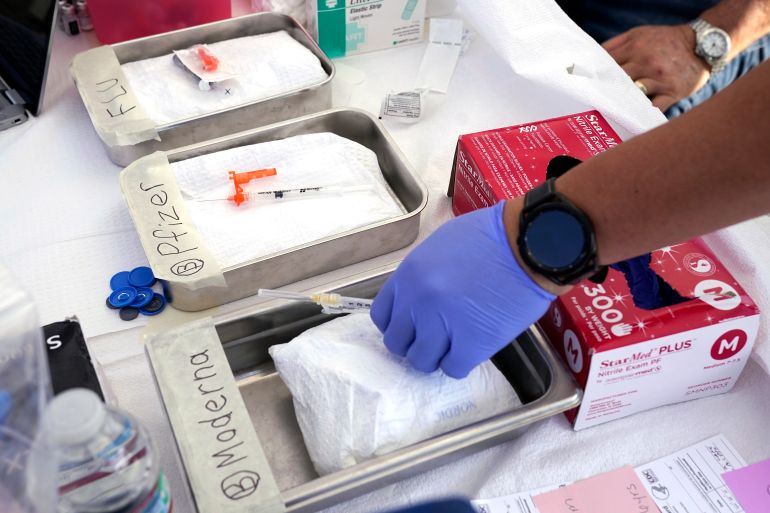Biden administration to end COVID public health emergency in May
The move would restructure federal response to treat the virus as an endemic public health threat, ending some government support.

United States President Joe Biden has informed Congress that his administration will formally end two national emergencies declared to address the COVID-19 pandemic on May 11, restructuring the federal response to the virus as an endemic public health threat.
The announcement on Monday came in a statement opposing resolutions being brought to the floor this week by House Republicans to bring the emergency to an immediate end. House Republicans are also gearing up to launch investigations on the federal government’s response to the virus.
Keep reading
list of 3 itemsWhat do we know about new COVID variant XBB.1.5?
China: After Zero-COVID
“An abrupt end to the emergency declarations would create wide-ranging chaos and uncertainty throughout the health care system – for states, for hospitals and doctors’ offices, and, most importantly, for tens of millions of Americans,” the Office of Management and Budget wrote in a Statement of Administration Policy.
The announcement comes as legislators have already ended elements of the emergencies that kept millions of Americans insured during the pandemic. The change would also mean the response can be managed through public health agencies’ normal authorities.
The move, combined with the drawdown of most federal COVID relief money, would also shift the development of vaccines and treatments away from the direct management of the federal government.
Health and Human Services Secretary Alex Azar first declared a public health emergency in response to COVID on January 31, 2020 during the administration of then-President Donald Trump. In March 2020, Trump declared the pandemic a national emergency.
The measures have been repeatedly extended by Biden since he took office in January 2021. The Biden administration had previously considered ending the emergency last year, but held off amid concerns about a potential “winter surge” in cases and to provide adequate time for providers, insurers and patients to prepare for its end.
The Centers for Disease Control and Prevention has recorded 1.1 million COVID deaths in the US since 2020, although the death rate has dropped dramatically since vaccines became widely available. The agency said about 3,700 people died from the virus last week.
US legislators have already blunted many federal programmes related to COVID, refusing for months to fulfil the Biden administration’s request for billions more dollars to extend free vaccines and testing.
The costs of COVID-19 vaccines are also expected to skyrocket once the government stops buying them, with Pfizer saying it will charge as much as $130 per dose. Only 15 percent of US residents have received the recommended, updated booster that has been offered since the last year.
Free at-home COVID tests will also come to an end, and hospitals will not get extra payments for treating patients after the emergency ends.
On Monday, the World Health Organization said the coronavirus remains a global health emergency, even as a key advisory panel for the group found the pandemic may be nearing an “inflexion point” where higher levels of immunity can lower virus-related deaths.
Biden’s announcement comes as the House of Representatives was scheduled to vote on Tuesday on legislation that would terminate the public health emergency.